The Sims, The Last of Us and 6 other pioneering video games that broke new ground for LGBT+ representation

The Sims 4. (EA)
It’s LGBT History Month, so we’re here to give you a quick lesson in gaming history with eight queer video games you really should know about.
LGBT+ representation in games has definitely picked up steam in recent years, with indie developers in particular offering fun, authentic and thought-provoking queer games. But since the 80s the LGBT+ community have been visible in video games – even if you haven’t heard of them…
Caper in the Castro

Caper in the Castro. (Internet Archives)
For many years, Caper in the Castro was thought to be lost. Originally released in 1989, it is widely considered to be the first LGBT+ video game. Its developer, CM Ralph, chose to release it as ‘Charity Ware’ on underground Bulletin Board Systems, urging any players to donate money to an AIDS organisation of their choosing.
In a 2014 interview with Paste, she explains: “In 1988 I had moved from Southern California (behind the orange curtain) to the San Francisco Bay Area… I wanted to give back to the community and also create a way to raise money for AIDS Charities.” It wasn’t until 2017, however, that Ralph uncovered floppy disks of the game and it was swiftly uploaded to the Internet Archive for anyone to play.
Playing as lesbian detective Tracker McDyke, the game is a noir point-and-click adventure in search of kidnapped drag queen Tessy LaFemme set in San Francisco’s prominent gay district.
A product of its time, there’s even a storyline about infecting the alcohol with a poisonous bacteria that directly parallels the AIDS crisis of the time. With its “…it’s a Gayme” tagline, Caper in the Castro is a proudly queer game released in a troubling time for the community and a key part of LGBT+ gaming history.
Gayblade
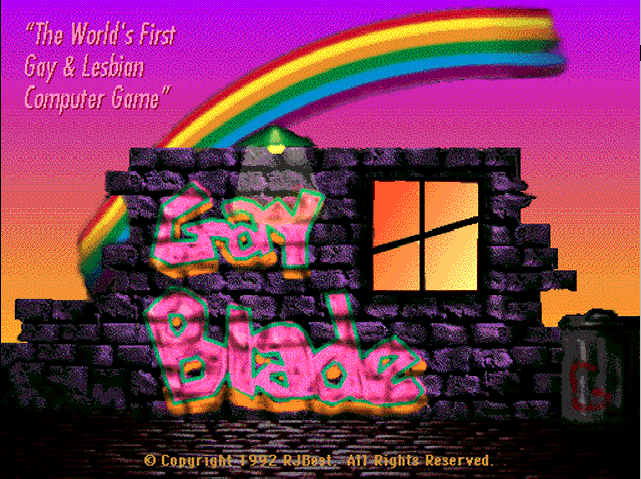
Gayblade. (Internet Archive)
Another game that was thought to be lost is Gayblade, wrapping social morality in a fantasy game. It was designed by Ryan Best in 1992 as a pastiche role-playing game in which players form a party of queer heroes to rescue Empress Nelda from the right-wing creatures of a terrifying dungeon.
Wearing leather jackets and condoms as armour and fighting with purses, mace and blow-driers, Best took inspiration from the treatment of the LGBT+ community at the time and spoofed it in his game. Speaking about the game on Netflix’s High Score show, Best said: “When I was finished with the game it was like therapy for me. A lot of the anger that I carried with me for years was gone and it was very freeing.”
Gayblade was the first LGBT+ focused RPG, but unfortunately Best lost the game’s original files in a shipping incident. After more than 15 years of searching, in 2019 the files were found and the game was made playable on the Internet Archive. Once more, Gayblade “gives lesbians and gays – and straight people – a chance to strike back at homophobia from behind our computer screen.”
The Sims
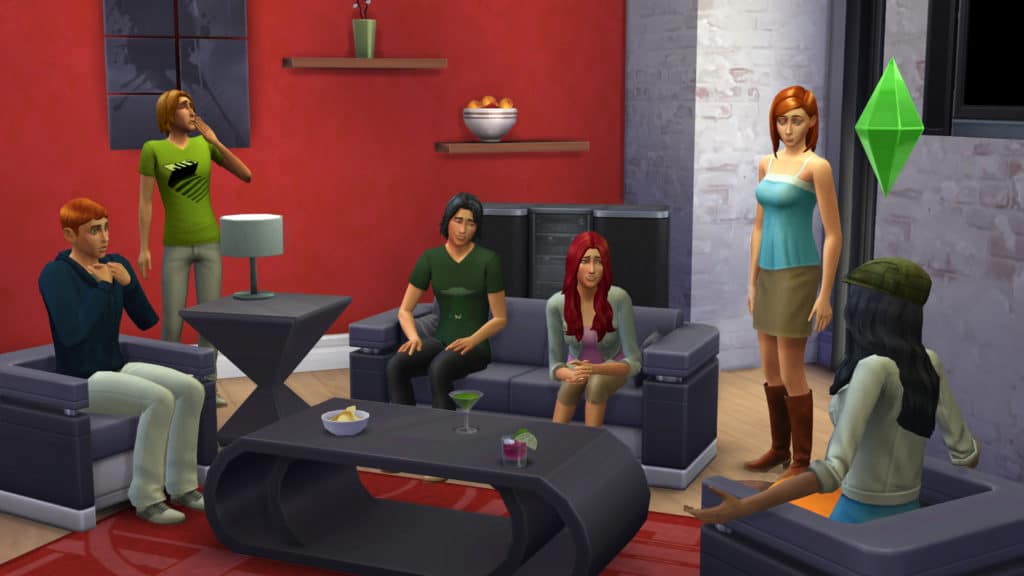
The Sims 4. (EA Maxis)
The first Sims game was released way back in 2000 and, for players of a certain age, was a way of exploring queer identity virtually. One of the best selling series of all time, they are sandbox games in which players can create a house and live out their lives as Sims. And right from the first game Sims were bisexual, able to fall in love with – and, ahem, WooHoo – Sims of different genders.
From there the series has expanded its LGBT+ representation. In The Sims 2 and 3, each Sim has a gender preference that reflects how they will react when not controlled by the player – this can change over the course of play, meaning gender preference is fluid. Most recently, The Sims 4 allows for gender customisation.
The overall choice is still binary, but within that further attributes can be customised – not just voice and clothing, but whether they sit or stand to use the toilet and whether they can be pregnant or impregnate another Sim. Fans have capitalised on these advances with mods to add further complexity to the game’s gender and sexuality options. To this day, The Sims series remains hugely popular within the LGBT+ community for its willingness to progress over time.
Gone Home
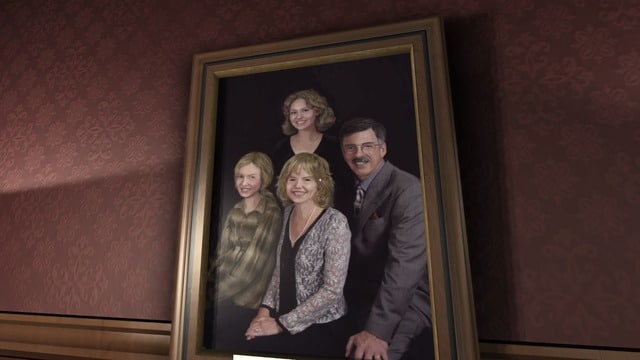
Gone Home. (Fullbright)
Walking simulators – or first person narrative games – have become a major genre of video game storytelling. And one of the first was 2013’s Gone Home from The Fullbright Company. Although short (there’s even a trophy/achievement for completing it in less than a minute), it packs an emotional punch. As 21-year-old Katie, players return to their family home only to find it deserted, leading Katie to uncover piece by piece the truth of their disappearance.
Over the course of the story, players uncover the coming out story of Katie’s younger sister and her parents’ reaction. Among the notes from the past and hidden clues is an authentic portrayal of discovering queer identity that’s sensitively depicted, all through an atmospheric mystery with splashes of horror. The game went on to be award nominated, and was Polygon’s game of the year in 2013. As an indie title, it proved how indie developers were a step ahead of the major studios when it came to representation.
Dragon Age: Inquisition
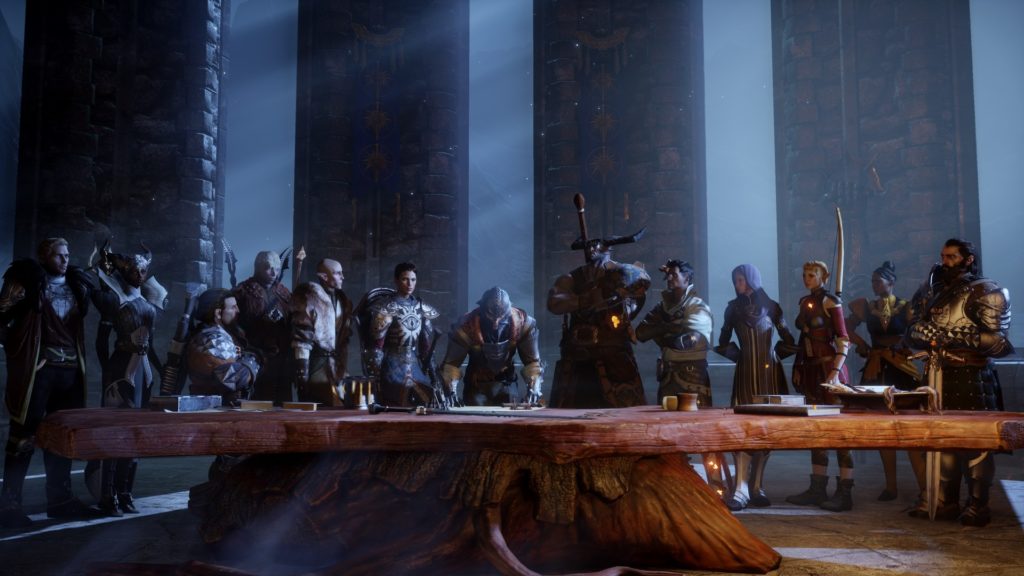
Dragon Age: Inquisition. (Bioware)
With its Mass Effect and Dragon Age series, developer Bioware has become known for offering player choice in their video games – including LGBT+ relationships. Dragon Age, though, is the more progressive of the two, with Inquisition (2014), the latest in the series, offering the most options. A high fantasy RPG, it sees a band of humans, elves, dwarves and more battling an incoming horde of demons. And within that, there’s still time for a spot of romance for your player customised character.
The diverse cast offers something for everyone, with same-sex options and two pansexual characters (including the sexy Iron Bull voiced by Freddie Prinze Jr). There’s also Krem, an NPC who cannot be romanced but is the first trans character in the series. Beyond its fantastical settings and in-depth combat, it’s the relationships between these characters and the player’s that make Dragon Age: Inquisition such a favourite among LGBT+ gamers.
The game is available on PS4, Xbox and PC and you can get it from game.co.uk or amazon.co.uk.
The Tearoom
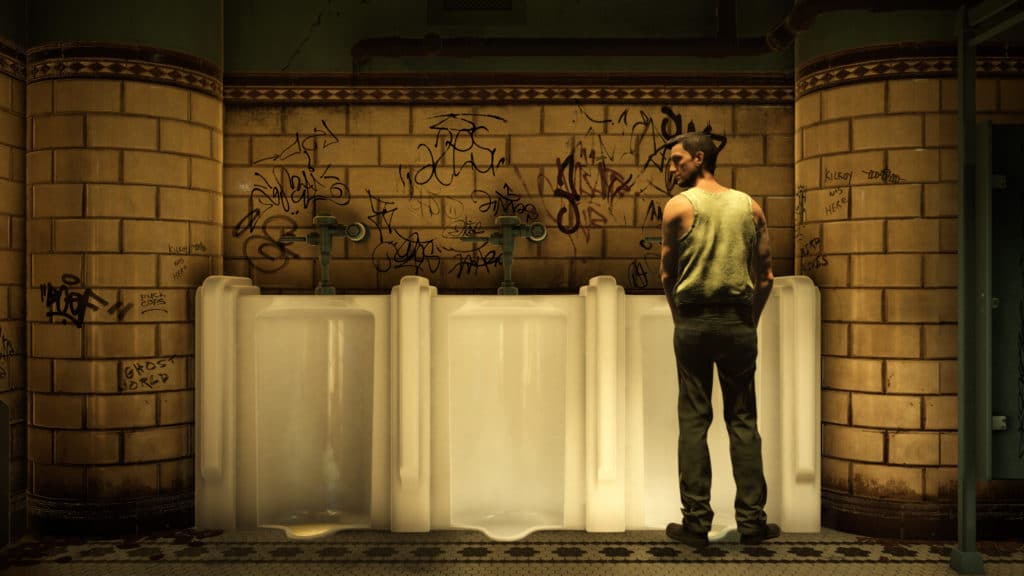
The Tearoom. (Robert Yang)
The Tearoom (2017) is perhaps the best known of Robert Yang’s video games. The developer creates explicit games that delve into the depths of gay culture, homoeroticism and intimacy. The Tearoom, for instance, is a bathroom simulator “about anxiety, police surveillance, and sucking off another dude’s gun”.
It’s based on surveillance cameras used by Ohio police in 1962 to secretly film men having sex before imprisoning them under sodomy law. In this game, though, penises are swapped for fleshy guns as, in Yang’s words, “The only thing that the game industry will never moderate nor ban.”
Twitch has banned many of Yang’s games from streams, including his 2015 game Rinse and Repeat in which you sneakily give another guy a rub down in the shower. His latest work is 2020’s homoerotic Hard Lads based on the viral video “British lads hit each other with a chair”. Divisive and politically extreme, Yang’s work is provocative and strictly NSFW.
Dream Daddy
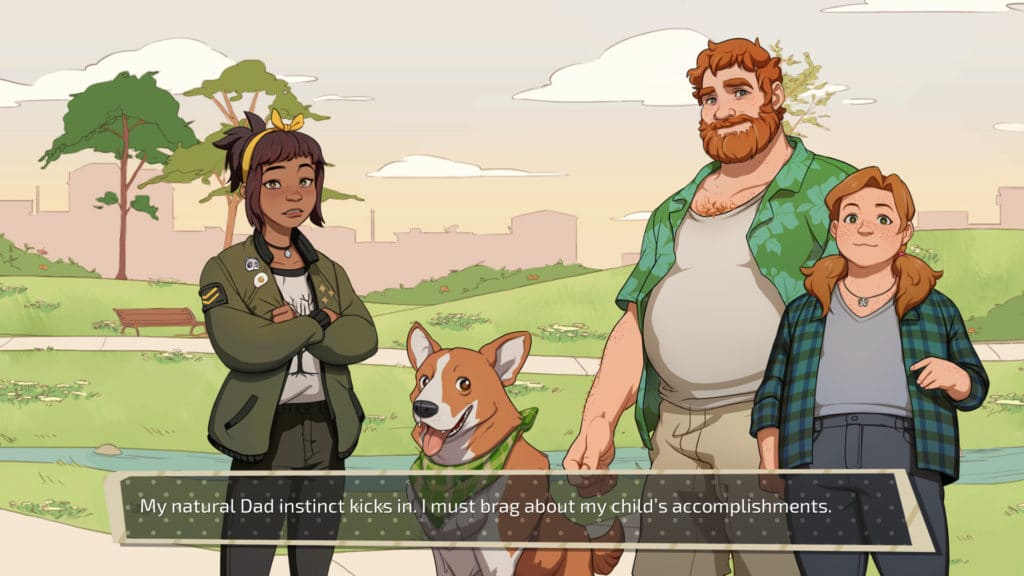
Dream Daddy. (Game Grumps)
Dream Daddy took gamers by storm in 2017. There are plenty of visual novels and dating sims depicting LGBT+ romance, but with Dream Daddy we got to indulge our daddy fantasy. As a young dad who moves to a new town with your daughter, it’s up to you to date the locals and find romance.
Beyond the colourful pastel visuals and the infectious theme song, Dream Daddy is notable for its normalising of LGBT+ relationships. There’s no trauma here, no focus on coming out. Instead, it present a group of gay dads who just…are. They each have their likes and dislikes, from a corgi owning fisherman, to a gym buff, a goth dad (who’s also implied to be trans), and the resident bad boy (don’t make that mistake). What’s more, it’s a rare example of queer parents in gaming – lovable and accepted. A liberal smattering of dad jokes only adds to the lighthearted comedy and breezy tone.
The Last of Us Part II
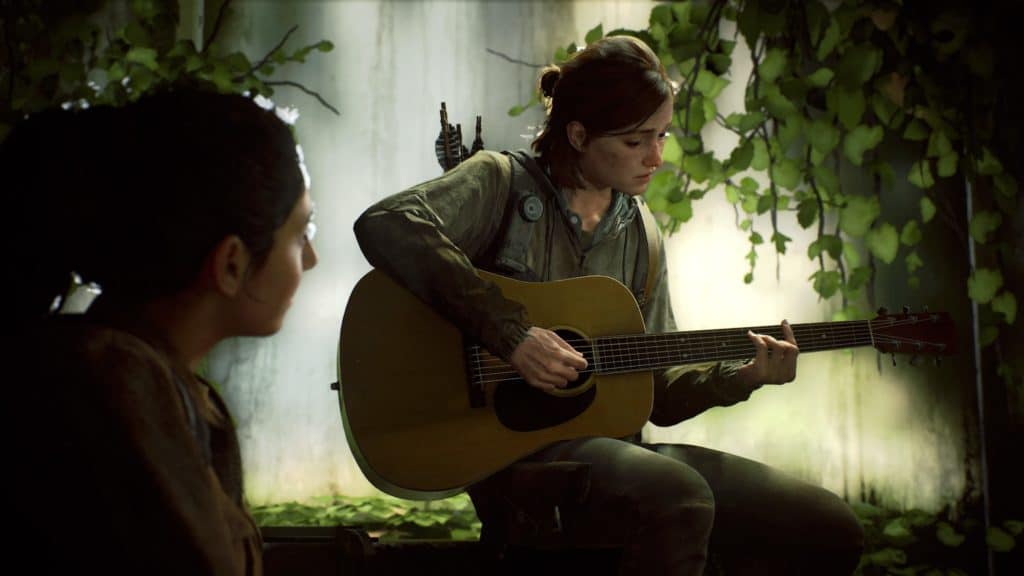
The Last Of Us Part II. (Naughty Dog)
Released just last year, The Last of Us Part II now holds the record for the most Game of the Year awards (surpassing The Witcher 3). Chances are you’ve probably heard of this one then. It’s not just one of the highest profile releases in PlayStation history (from renowned studio Naughty Dog, creators of Crash Bandicoot, Uncharted and more), but has a lesbian in the lead role – the first release from a major studio to do so.
Within its bleak narrative of violence during a global apocalypse, the relationship between lead character Ellie and her girlfriend Dina is touchingly human.
They love and laugh and argue as any other couple would do, and their queerness is never up for debate. Only in one flashback scene is there a sense of homophobia. Elsewhere, the game’s depiction of a trans man has been criticised by some (whose story is wrapped up in trauma and deadnaming), but there are at least attempts here from a major studio to incorporate a diverse cast of LGBT+ video game characters which is a major step in the right direction.
The game is available for a number of platforms from game.co.uk or amazon.co.uk.
This article contains affiliate links, PinkNews may earn revenue if you click through and purchase products through the links.

